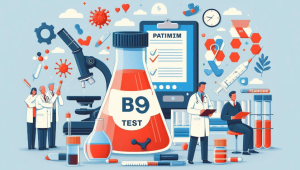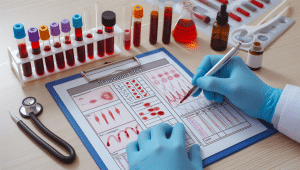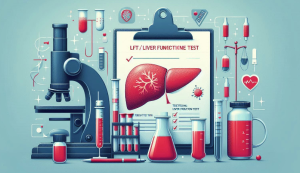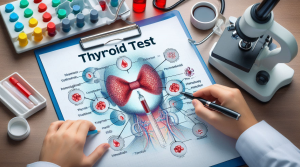What is a Lipid Profile Test?
A lipid profile is a blood test that measures the levels of various fats, or lipids, circulating in your bloodstream. These lipids are crucial for several bodily functions, including building cell membranes, producing hormones, and aiding in digestion. However, elevated levels of certain lipids can significantly increase your risk of heart disease, stroke, and other cardiovascular complications.
Why is Lipid Profile Important?
Regular lipid profile testing is a cornerstone of preventive healthcare. By monitoring your lipid levels, you and your healthcare provider can:
- Assess heart disease risk: Elevated LDL cholesterol, low HDL cholesterol, and high triglycerides are key indicators of an increased risk of heart disease and stroke.
- Monitor treatment effectiveness: If you’re already managing conditions like high cholesterol or heart disease, lipid profiles help track the efficacy of your treatment plan.
- Inform lifestyle modifications: Understanding your lipid levels can motivate you to adopt heart-healthy habits, such as dietary changes, regular exercise, and weight management.
- Detect underlying health issues: Abnormal lipid levels can sometimes signal other health problems, such as diabetes, hypothyroidism, or kidney disease.
What Does the Lipid Profile Test Measure?
A standard lipid profile typically includes the following components:
- Total cholesterol: This is the overall amount of cholesterol in your blood, encompassing both “good” and “bad” cholesterol.
- LDL cholesterol: Often referred to as “bad” cholesterol, LDL cholesterol can build up in your arteries, forming plaques that restrict blood flow.
- HDL cholesterol: Known as “good” cholesterol, HDL cholesterol helps remove LDL cholesterol from the bloodstream and transport it to the liver for processing.
- Triglycerides: These are another type of fat in the blood that can contribute to heart disease risk when elevated.
Preparing for the Test
To ensure accurate results, most healthcare providers recommend fasting for 9-12 hours before the lipid profile test. This means abstaining from food and beverages except water. However, it’s essential to follow your doctor’s specific instructions, as preparation guidelines may vary based on individual circumstances.
Understanding the Results
Interpreting lipid profile results requires a comprehensive evaluation by your healthcare provider. They will consider your test values in conjunction with other factors, such as your age, gender, medical history, and lifestyle, to assess your overall heart health risk.
Generally, desirable lipid levels include:
- Low LDL cholesterol
- High HDL cholesterol
- Normal triglyceride levels
However, it’s important to note that ideal lipid targets may vary depending on individual risk factors.
Risk Factors and Prevention
Several factors contribute to elevated lipid levels, including:
- Diet: High intake of saturated and trans fats can raise LDL cholesterol levels.
- Physical inactivity: Regular exercise helps improve HDL cholesterol levels and lower LDL cholesterol and triglyceride levels.
- Obesity: Excess weight is often associated with higher lipid levels.
- Smoking: Smoking damages blood vessels and can negatively impact cholesterol levels.
- Genetics: Family history of heart disease can increase your risk of high cholesterol.
- Medical conditions: Diabetes, kidney disease, and hypothyroidism can affect lipid levels.
By addressing these risk factors through lifestyle modifications and, if necessary, medical treatment, you can significantly reduce your risk of heart disease and stroke.
A lipid profile test is a valuable tool for assessing your cardiovascular health. By understanding your lipid levels and working with your healthcare provider, you can take proactive steps to protect your heart. Remember, early detection and management are key to preventing heart disease complications.

 7351982473
7351982473











